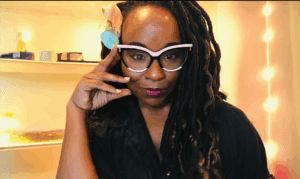If you watch the news in any large city you are probably desensitized to stories about crime involving young black men. Most nights there are reports about several of them getting shot; often, more than one dies. It might be a gang fight, a revenge killing, robbery or a drive-by. Someone is likely killed for their cellphone, or simply because they talked to the wrong girl at a party. Tragedy has become routine. Too many young black men die on our streets; too many rot in our prisons.
Two weeks ago, the Chicago Tribune reported that at least 10 people, including a 6-year-old girl, were killed in weekend shootings in Chicago.
The media love these stories because they up the ratings and spike newsstand sales. Fear sells. “If it bleeds, it leads” is a familiar saying among those in the news business. Politicians use these horrific stories as an opportunity to pontificate for the cameras. They all deplore the violence, denounce it and demand its end, their outrage well timed to make the 10 o’clock news.
Rev. Al Sharpton frequently inserts himself into these situations, crying for “justice,” which in the case of 17-year-old Trayvon Martin is likely to come without his help, given the multiple levels of government involvement in the investigation.
The facts in this case are not yet fully known, but that doesn’t stop people from thinking they have them, giving some an excuse to resurrect racial templates from the past. The Washington Post featured this headline last week, “Florida Shooting Stirs Memories of Civil Rights Era.”
Trayvon Martin was shot and killed by George Zimmerman, a member of a neighborhood watch group. Whether Zimmerman was an official member, or a cop wannabe, is one of the questions investigators are asking.
Zimmerman has yet to be charged, presumably, because officials are trying to sort out whether a Florida law known as “stand your ground,” which gives Florida residents the right to protect themselves with deadly force, applies in the Martin case.
That hasn’t stopped nearly 1 million signers of an online “petition” from reaching conclusions before investigators and a grand jury have completed their work.
I will leave the questions about this tragedy to those looking into it, but the politics of it is worthy of comment.
In light of the number of young black men who are too often gunned down on America’s streets, what’s different about the Trayvon Martin case?
Is it the fact that he was killed in a gated community and not in an alley in Detroit? If Zimmerman, a white Hispanic, were black, would we have the current controversy?
If Martin were white, or any other race, would the president of the United States have called for “soul searching”? He made no comment about the Chicago shootings.
Would Al Sharpton have made the trip to Florida if Martin had been white?
Not likely. Sharpton apparently hopes people have forgotten the 1987 Tawana Brawley incident during which he waved the “racism” flag in support of the African-American teenager’s contention that she had been raped by six white men. A grand jury later found that Brawley had not been the victim of a forced sexual assault.
The New York prosecutor whom Brawley had accused as one of her alleged assailants successfully sued Brawley and her three advisers, including Sharpton, for defamation.
The media bear some responsibility for exacerbating racial tensions. By too often featuring stories of violent young black men they appear to promote the very racial stereotyping they deplore.
Why don’t we see more stories about young black men making right choices, staying in school, rejecting drugs and getting married before having children? They exist. Can’t the media find them?
The steady drumbeat of crime and violence in the media and their association of race and crime with certain parts of town feed into the often irrational fears of white people.
I’m not suggesting these stories shouldn’t be covered. I am suggesting that local news ought to tell more stories of young black men who make good decisions that benefit themselves and their communities. Or have we forgotten what “good” looks like?
Trayvon Martin should not have been killed, but Zimmerman shouldn’t be the only one facing indictment.
[Cal Thomas is America’s most widely syndicated op-ed columnist, appearing in more than 600 national newspapers. He is the author of more than 10 books and is a FOX News political contributor since 1997. Email Cal Thomas at [email protected].] ©2012 TRIBUNE MEDIA SERVICES, INC.












Leave a Comment
You must be logged in to post a comment.